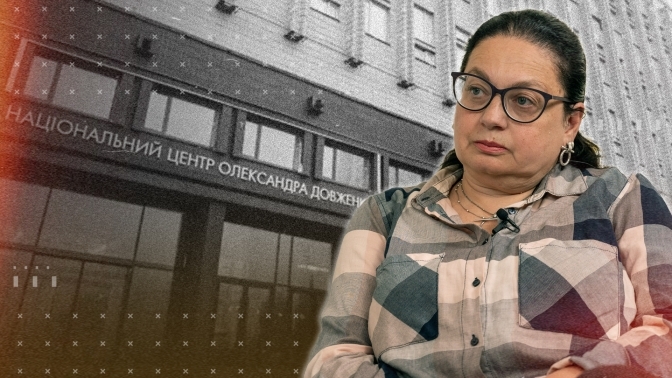
[For urgent updates please follow Ukrainian Freedom News on Telegram]
Do we need to divide everything into Russian and Ukrainian? Ukrainian publicist Volodymyr Dubinyansky once assumed that there are two Ukraines. A small one is focused on self-identification, preservation of the national and the separation from Russia. A second, big one, aims at openness to the world. Still, if a united country is important to us, they must coexist somehow.
They will co-exist because if everything is crossed out and banned, we will become North Korea or Russia. However, it’s important not to overplay inferiority. Many representatives of that «big Ukraine», the Kyiv intelligentsia, cling to Bulgakov so much not because he is Bulgakov, but because they do not know Mykola Khvylovyi [a prominent Ukrainian writer of the Executed Renaissance – a generation of Ukrainian intelligentsia of 1920s-30s, executed by the Stalin regime]. They clung to Gogol, but Oleksa Storozhenko will not be republished in our country.
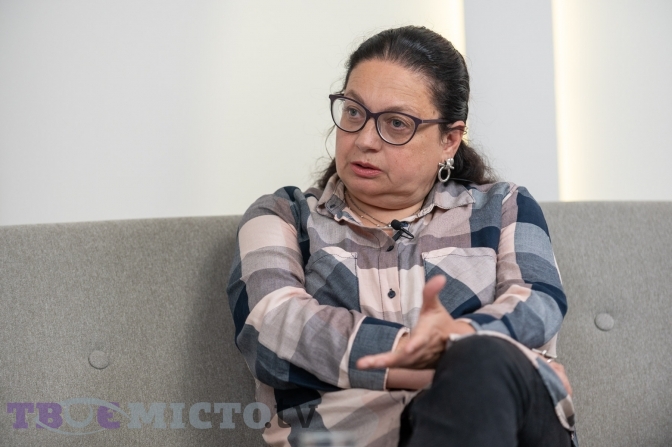
It was well said that Bulgakov’s Kyiv is quite important to some people in Ukraine, unlike the one described in the «Misto« (The City) novel by Ukrainian modernist writer Valerian Pidmohylnyi. Most likely, they don’t know about the latter.
It is necessary to carry out serious work on this Ukrainian Ukraine, which we know little about and which many generations have not studied at all. What did we actually learn? Franko, Shevchenko, Panas Myrnyi, and a bit of Lesya Ukrainka.
At the same time, in the Soviet period, Shevchenko became a «cherry orchard» which he had described in his poems, while Franko was presented as a prophet of communism…
The historical context was very twisted, and it was all terrible nausea. Against this background, Russia’s Blok and Bulgakov were a breath of fresh air, at least for me at school. Frankly, I don’t know what the current situation with Ukrainian literature is like. But when my son studied at school, I had the impression that if a good Ukrainian poet wrote one bad poem, it would definitely be included in the curriculum. A person who knows nothing of what Bulgakov wrote, after looking at all this, will take up reading it, because she will be interested in who this author was. Not Valerian Pidmohylynyi, who is constantly mentioned.
Read also: «We were first among the Soviet countries to dismantle the monument to Lenin»
If we talk about the Bulgakov museum, around which the society is breaking spears now, then I believe it shouln’t be closed. Only in the Soviet Union, museums were the «museums of approval». There are, for example, Holocaust museums. It would be interesting to create a concept of a house that is interesting in itself, where, in addition to Bulgakov, Ukrainian coryphaeus Oleksandr Koshyts lived. This is the easiest option.
We recently spoke with Yaroslav Hrytsak about the Pirogov estate in Vinnytsia. You can look at Pirogov from the pro-Ukrainian side, but this is not presented in the museum. Moreover, this manor existed even before him and belonged to a well-known family, about which few people know. So how do we understand what we can now appropriate and what can be cancelled?
It seems to me that any total ban generates interest. Even before the age of the Internet, we read everything we wanted: both Nabokov and Bulgakov. Now, everything is available, so banning it is ridiculous. Enlightenment is important here, it should be done instead of cancellation. When Siamese twins are born, doctors try to separate them, and only then, they learn to live independently. This is exactly what should be done with Russian culture. Most of the world is globalizing, it’s hard to find a film made by just one country, and it’s very difficult to separate here.
What about the part of Ukraine that belonged to Austria-Hungary? There is a lot left here from those times. Fedorov printed the first book in Old Ukrainian in Lviv, but the very first text was printed here in Latin. Were those who wrote in Latin also a part of Lviv history?
If we consider Scythians and Sarmatians part of history, why not? The monument to Fedorov was erected by the architect Konsulov, who actually created a lot of good things in Lviv. God grant that the present learn from him. But we won’t destroy what he created, because he came here after studying in Moscow.
All history is important. The fact that we consider Fedorov to be a publisher is an indicator of the Soviet concept in which we continue to live. I recently listened to an interview with the «good Russian» actress Yevgenia Simonova, who actively opposes the war. The interview is interesting, but there she mentioned the late 1960s – early 1970s, when «the regime ceased to be cannibalistic.» For us, this is the time of arrests of Ukrainian dissidents, but for her, this history does not exist. So why do we continue to exist, albeit less, in this context?
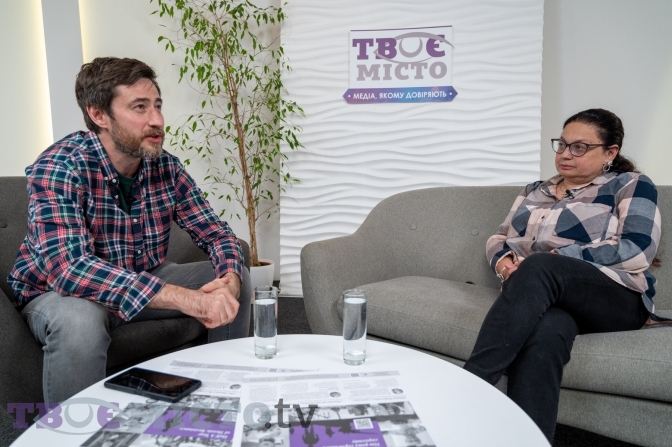
Let’s talk about another scandal. It was reported that somewhere in Norway, the famous Ukrainian writer Yurii Andruhovych spoke about the war in Ukraine with the Russian writer Shishkin, for which he still receives a wave of hate. In such discussions, we divide everything into «black and white», into betrayal and victory. How do you feel about it?
I believe that now, we have to completely push aside the Russians, whether they are good or bad.
But Shishkin left Russia in 2014 and very quickly acquired Swiss citizenship...
He left earlier because of getting married. And in 2014, he said that he would not visit Russia. I know many people who stopped joint projects [with Russia], although I wonder why they did it in 2022 and not in 2014. We are not strong enough now to spit on everything and say we have our own way. It’s very difficult to explain all this to Europe and the globalized world. As well as why the Cannes festival should not invite Serebrennikov, who said a lot of harmful nonsense, just like the director Serhii Loznytsia.
Read also: «We’re losing our territory in language,» – translator and linguist Andrii Sodomora
Still, after the Maidan in 2014, at one of the press conferences, Loznytsia said very important words. The correspondent of the Dozhd TV channel asked him: «You refuse to give an interview to the Russian press. Why don’t you want to? We are so good, we are the opposition.» To which he replied: «Because your presence legitimizes Russia, you create the appearance of democracy.»
This is the reason why Ukrainian artists, in particular filmmakers, are very actively advocating the «cancellation» of Russian culture. At least while the hostilities continue. Because Serebrennikov in Cannes and other directors legitimize Russian culture, giving the following message to the Western audience, who does not really understand our affairs: they [Russians] have directors, so everything is not so bad.
Then, why shouldn’t they invite, say, Serebrennikov, if Andruhovich is talking to Shishkin? Both Serebrennikov and Shishkin are allegedly victims of the regime, both oppose the annexation of Crimea. We won’t be able to explain these nuances to the West.
That is, if we want unconditional support for our position, we must demonstrate our unconditional «black and white» position, right?
Definitely. How can we demand this from someone if we don’t do it ourselves?
Recently, the main news in «Meduza» media, the entire editorial team of which has left Russia, was the decision of Poland and the Baltic countries not to admit Russian citizens with Schengen visas.
On the same «Meduza», there was an interview with the mother of a boy who survived Beslan school siege. Now, he is an adult and… is fighting against Ukraine. It’s offered with sympathy to a mother whose child has been through this and is now at war. It’s without any editorial comments. The mother simply tells that her child has not done anything wrong, that she is fighting the «fascists». This interview struck me, as did many other texts that broadcast Kremlin messages.
That is, there is not such a big difference between «Meduza» and the blog of Girkin?
It’s minimal.
Regarding Ukrainian cinema. Is there a problem with the generation that has now appeared? Do they think that before them nothing existed, everything was wrong?
This new generation came not only to the cinema, but also to culture. Do you see what happened to the Ukrainian Cultural Fund, which helped implement the projects that represented modern Ukraine? This institution is also facing a complete collapse. Of course, the war will write off a lot... In our country, culture was financed according to the residual principle, and this generation has an interest in culture: they are producers who redirect flows. And even when they leave, everything will already be shared and earned.
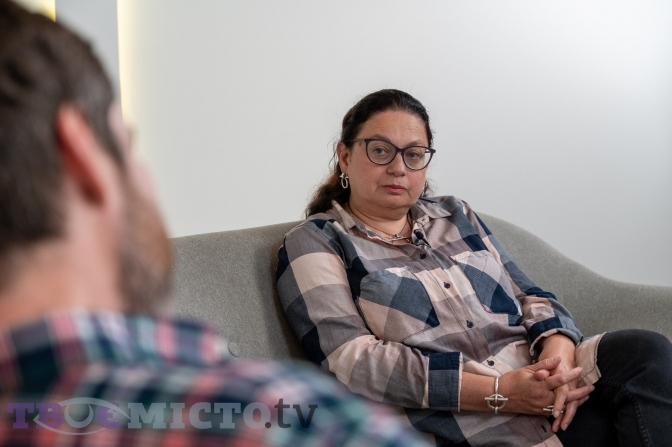
What should we do when we are faced with such situation in times of war? Why would we maintain financing of the Bulgakov Museum, and let state cultural institution be «stretched to pieces»? This war is about culture!
Yes, it’s about culture, and identity.
Few days ago, police conducted search in the apartments of the volunteer Svyatoslav Litynskyi, a candidate for the position of language ombudsman. Before that, a case was brought against Oles Dzyndra and Roman Matys. All these people are active champions of the Ukrainian language and culture. Is it planned?
It’s hard for me to say that it’s more about them as volunteers than about language. And useless to even talk that it’s definitely harmful. Dzyndra and I did many joint projects, including the «KinoLev» festival. Oles just took the money he earned, invested it in the festival and fed the participants. This is how the «Canteen of Ideas» was born. He always gave his share when it was necessary to do a common thing. It is very dangerous when people write on social networks: «You are defending your own fellows, but maybe they are guilty. And if they are not guilty, they’ll somehow deal with it.» We know how things are done, we should not perceive this as «authority from God – we will not criticize them, we will wait until they reach the truth.» The same applies to culture. So that cinematographers and artists are not left alone with problems. If society understood that this is an important problem and intervened, then perhaps these cases would not exist.
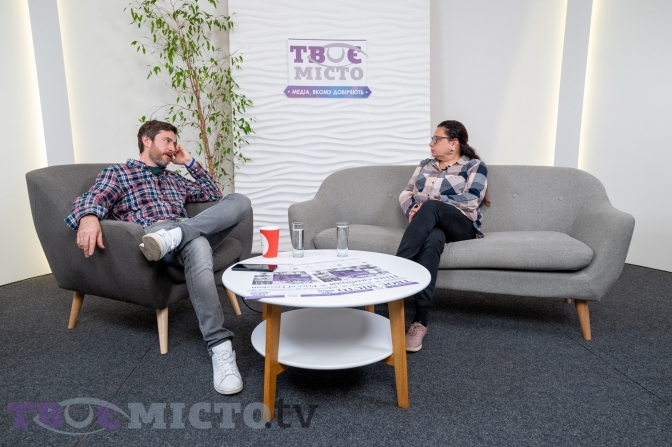
Read also: «State would have to support the volunteers.» Public activist Sviatoslav Litynskyi on criminal cases
Will we ever have someone like Valerii Zaluzhnyi in our culture?
I don’t know. In 2014, many young managers came, in particular, Ivan Kozlenko, Olesya Ostrovska, Olya Puzhakovska. The latter headed a completely «dead» theatre, a ruin [Lviv Academic Drama Theater named after Lesya Ukrainka, which she, as Ukraine’s youngest artistic director of an academic theater, has been heading since 2017]. Many tried to develop it, but nothing came as a result. And she does a lot with the team.
Pleasant changes occur in the First Theater in Lviv. There are managers, but many came, were disappointed and left because they could not break through this bureaucratic wall. In culture, in cinema, they are faced with very imperfect legislation: they can make you guilty just for doing your job, and if they want to, they will find something. Here, let’s say, the same festival we talked about is financed after the event. So, where to get money to bring people, feed and house them? It is the same with volunteers: the legislation does not allow prompt response to demands, making them vulnerable. And a lot of people will say after these stories: «Why should I do this anymore?»
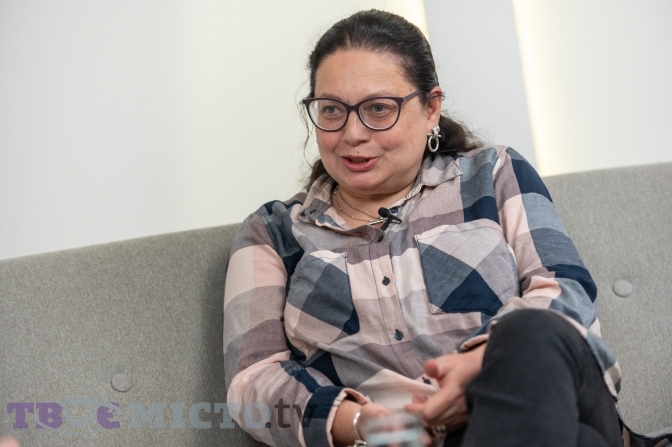
Well, let’s talk about something optimistic at the end.
Despite the «efforts» of Derzhkino (Ukrainian state filming agency), we have many good films. I’m saying this because I’m preparing for the Film Critics Award in October and watching movies that I didn’t have time to watch. There are interesting reflections on the topic of war, which can somehow heal our traumas, unlike the «good Russians».
Andriy Saichuk spoke
Text: Marichka Ilyina, translated by Vitalii Holich
Photo: Ivan Stanislavskyi
Collage: Dmytro Taradayka
Full or partial republication of the text without the written consent of the editors is prohibited and considered a copyright violation.
Follow us on Facebook and Instagram. Lviv Now is an English-language website for Lviv, Ukraine’s «tech-friendly cultural hub.» It is produced by Tvoe Misto («Your City») media-hub, which also hosts regular problem-solving public forums to benefit the city and its people.












